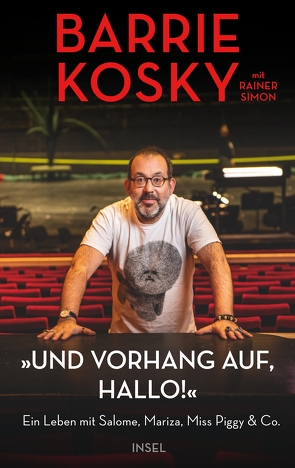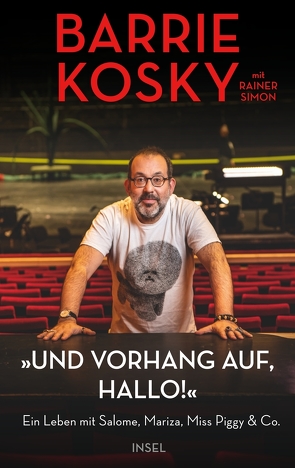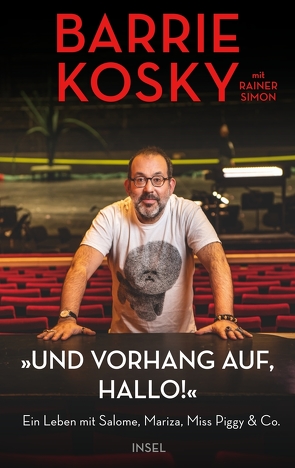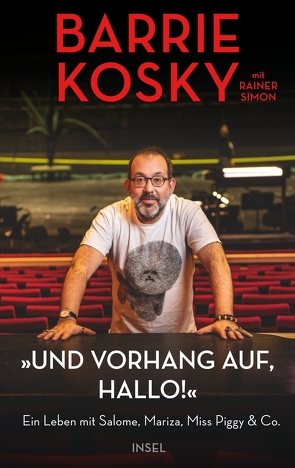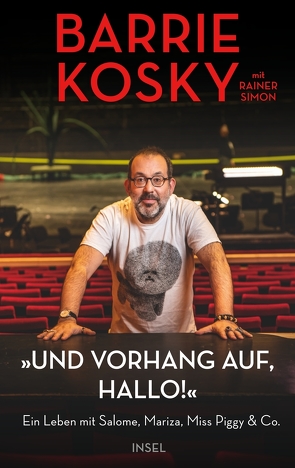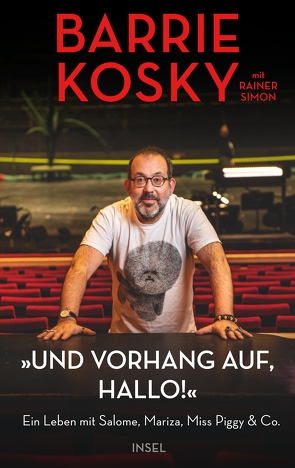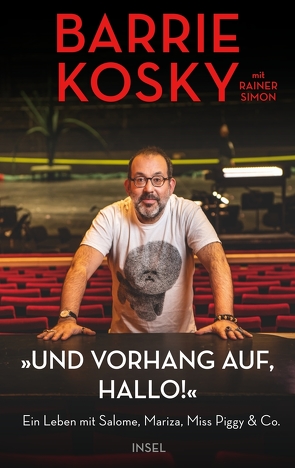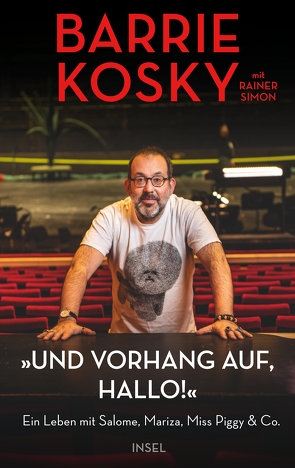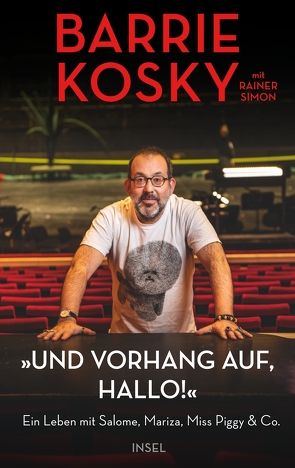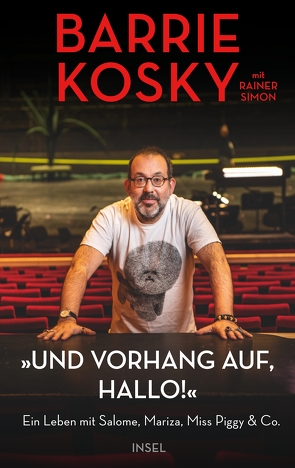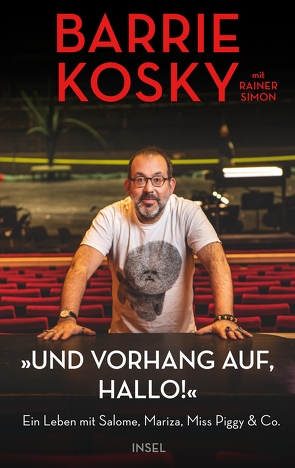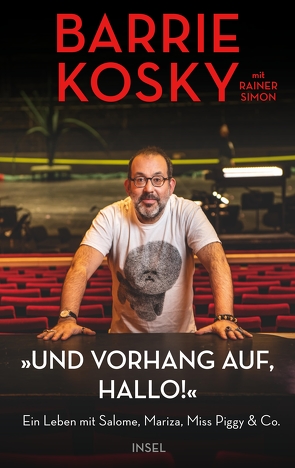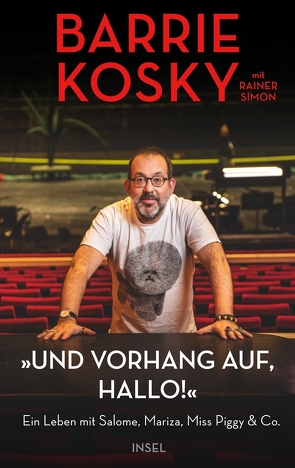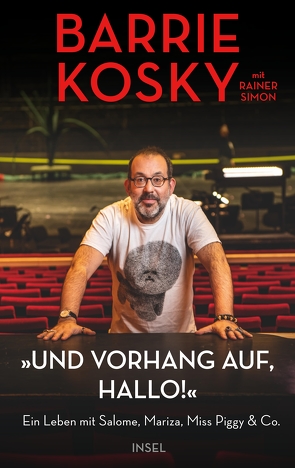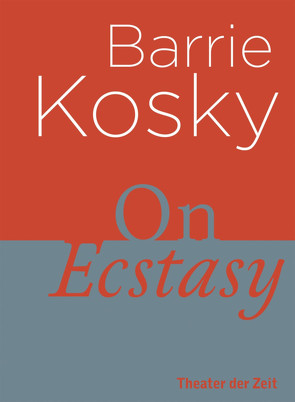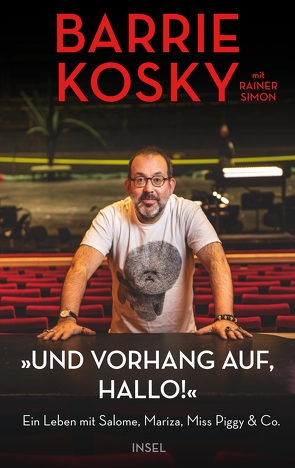Aktualisiert: 2023-06-28
> findR *
Aktualisiert: 2023-06-28
> findR *
Aktualisiert: 2023-06-28
> findR *
Aktualisiert: 2023-06-28
> findR *
Aktualisiert: 2023-06-28
> findR *
Aktualisiert: 2023-06-02
> findR *
Aktualisiert: 2023-05-23
> findR *
Aktualisiert: 2023-05-23
> findR *
Aktualisiert: 2023-05-19
> findR *
Aktualisiert: 2023-05-19
> findR *
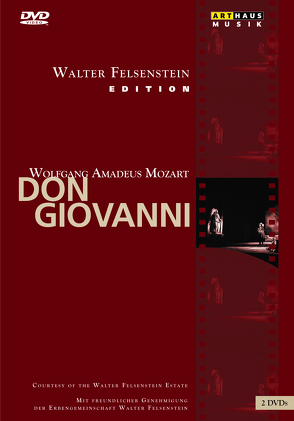
Walter Felsenstein (1901–1975), founder and general director of the Komische Oper in Berlin, was one of the twentieth century’s greatest creative theatre directors, who played a hugely important role in the revival of opera as a theatrical art form. A brilliant artist who directed over 190 productions during the course of his career, he was equally committed to the works, their creators, the ensemble and the audience.
With his adaption of “Don Giovanni” (1966) Felsenstein paid homage to Mozart and his ingenious work which he always admired. He decided to celebrate the reopening of the Komische Oper (1966) with the premiere of this “opera of all operas”, which blends comedy, melodrama and supernatural elements. As Don Giovanni, Felsenstein assigned the Hungarian baritone György Melis. This outstanding singer, who had already interpreted the role of the amorous conquerer at the Festivals of Glyndebourne in 1961, appeared in Felsenstein’s adaption also as an outstanding actor. With impressive Klara Barlow as Donna Anna and a distinguished cast at his side this production is an extraordinary listening pleasure. Besides that it sets benchmarks in filming operas. “Don Giovanni” by Felsenstein is a filmed opera, rather than a feature film based on the opera, and reflects a particular staging of this masterpiece in opera history. Through the lens, Felsenstein made this work come alive to reveal the various personal relationships at the core of the quintessential tragicomedy by Mozart. The founder of the Komische Oper Berlin brought his own genius to the result in a film that is as strong dramatically as it is musically. Through his efforts in filming this opera, Felsenstein does not minimize music in this film but rather intensifies it.
Aktualisiert: 2023-05-18
> findR *
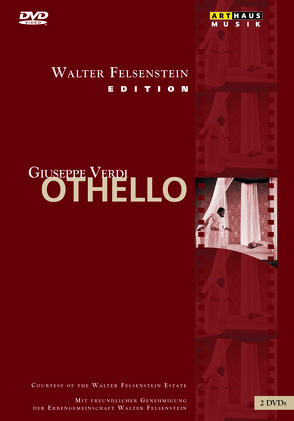
Walter Felsenstein (1901–1975), founder and general director of the Komische Oper in Berlin, was one of the twentieth century’s greatest creative theatre directors, who played a hugely important role in the revival of opera as a theatrical art form. A brilliant artist who directed over 190 productions during the course of his career, he was equally committed to the works, their creators, the ensemble and the audience.
For Felsenstein, Verdi’s “Othello” was one of the most significant works in the history of opera. This was why he chose it to shoot the first colour opera film for DEFA in 1969. In his own interpretation, Felsenstein succeeded in creating a work that was not simply a documentation of the stage production, but a work that used cinematic means in order to portray the “unbearable happiness” that “Othello” conveys. Guiseppe Verdi who was enthused by Shakespeare’s plays produced with “Othello” an ingenious late work that the fantastic librettist, Arrigo Boito, had specially adapted for him beforehand.
In his penultimate opera, the composer once again demonstrates his entire creative energy and turns the beauty and tragedy of the love between the endearing Desdemona and Othello, the commander who everyone regards mistrustfully because he is black, into music that excites the audience today just as much as it did back then. Felsenstein produces with “Othello” a film that tells a tragic story interwoven with great music and at the same time documents his own dramaturgical work.
Aktualisiert: 2023-05-18
> findR *
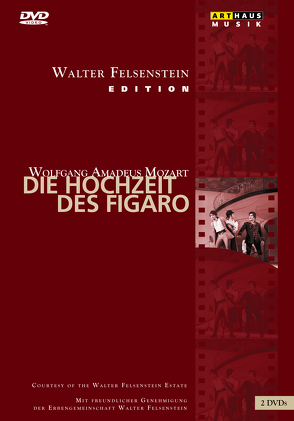
Walter Felsenstein (1901–1975), founder and general director of the Komische Oper in Berlin, was one of the twentieth century’s greatest creative theatre directors, who played a hugely important role in the revival of opera as a theatrical art form. A brilliant artist who directed over 190 productions during the course of his career, he was equally committed to the works, their creators, the ensemble and the audience.
The Marriage of Figaro that received its premiere on 26 February 1975 in the Komische Oper Berlin was Walter Felsenstein’s last production and in many respects can be regarded as representing his legacy. Having just returned from directing a guest production at Vienna’s Burgtheater, Felsenstein had been working on Figaro since early February 1974. He had already directed three productions of the work – in 1934 in Cologne, in 1942 at the Salzburg Festival and in 1950 at the Komische Oper. For the latter production, he had used earlier translations as the basis for producing a new text version, but he now decided that this was inadequate, as he had reached the conclusion that from the point of view of both form and expression, rhyme was crucial at many points in the musical numbers. He also wanted to further fine-tune the formulation of the text – putting the emphasis on the sense rather than word-for-word equivalence (which was, in any case, impossible). For a 74-year-old, Felsenstein had a punishing work schedule. In addition to working on Figaro (translating the libretto, analysing the pieces with the conductor, working on the overall concept, holding discussions with the set and costume designers), he also had to find time for his work as General Director, for congresses, for a guest production of Bluebeard and for many other duties. His principle was, “always to start from the beginning again, to try to reach an understanding of the text and the music as though they had never before been interpreted or ‘understood’. I call it ‘taking the work literally’. And it is above all the music that has to be taken literally.” Thus he tried to approach even his fourth production of the work in a spirit of ‘naivety’, while, at the same time, benefiting from the experience gained with his previous productions. With inexorable meticulousness, Felsenstein pored over the opera, consulting its roots in the works of Beaumarchais and Paisiello (The Barber of Seville) in order to be able to understand the relationship between the characters in Mozart’s work.
Aktualisiert: 2023-05-18
> findR *
Monteverdi’s operas are rightly considered as the fi rst masterpieces in opera history. Much like DNA, they contain all characteristics of today’s opera, 400 years later. Elena Kats-Chernin, a successful international composer from Tashkent, used Monteverdi’s musical material, even though it barely contains any concrete orchestration details, and has provided
a new and idiosyncratic instrumentation. Similar to what Monteverdi did in his time, Kats-Chernin incorporates various styles, from Jazz, Klezmer, to Tango and Ragtime into her style. This new creation of Monteverdi’s opera uses the traditional orchestral instrumentation, and adds exotic instruments from Eastern Europe, the Middle East and Western Africa.
Strong, comic, enthralling, stark and sensitive images, with
which Barrie Kosky fascinates the audience, stirring them to
raucous applause.
Aktualisiert: 2023-05-18
> findR *
Aktualisiert: 2023-05-17
> findR *
Aktualisiert: 2023-05-16
> findR *
Aktualisiert: 2023-05-12
> findR *
Aktualisiert: 2023-05-12
> findR *
Barrie Kosky versteht es nicht nur als der gefeierte Regiestar der Komischen Oper in Berlin, sondern auch als unterhaltsamer und fesselnder Erzähler, der überwältigenden Macht des Gefühls einen glänzenden Auftritt zu bereiten. "On Ecstasy" ist seine Biografie des Schreckens und des Glücks im rauschhaften Moment: der Ekstase des Schmeckens beim Genuss der Hühnersuppe der geliebten Großmutter, der Ekstase des Fühlens im Pelzlager des Vaters in Melbourne, des Sogs der unbekannten Zonen des Geschlechts, der Überwältigung in der Begegnung mit den Sinfonien von Mahler und der überirdischen Halluzinationen der Opern von Wagner …
"On Ecstasy" ist die humorvolle Betrachtung des sinnlichen Dranges und der éducation sentimentale eines jungen Mannes und seiner Genese als Künstler.
Aktualisiert: 2023-05-10
> findR *
Aktualisiert: 2023-05-11
> findR *
MEHR ANZEIGEN
Bücher zum Thema Komische Oper Berlin
Sie suchen ein Buch über Komische Oper Berlin? Bei Buch findr finden Sie eine große Auswahl Bücher zum
Thema Komische Oper Berlin. Entdecken Sie neue Bücher oder Klassiker für Sie selbst oder zum Verschenken. Buch findr
hat zahlreiche Bücher zum Thema Komische Oper Berlin im Sortiment. Nehmen Sie sich Zeit zum Stöbern und finden Sie das
passende Buch für Ihr Lesevergnügen. Stöbern Sie durch unser Angebot und finden Sie aus unserer großen Auswahl das
Buch, das Ihnen zusagt. Bei Buch findr finden Sie Romane, Ratgeber, wissenschaftliche und populärwissenschaftliche
Bücher uvm. Bestellen Sie Ihr Buch zum Thema Komische Oper Berlin einfach online und lassen Sie es sich bequem nach
Hause schicken. Wir wünschen Ihnen schöne und entspannte Lesemomente mit Ihrem Buch.
Komische Oper Berlin - Große Auswahl Bücher bei Buch findr
Bei uns finden Sie Bücher beliebter Autoren, Neuerscheinungen, Bestseller genauso wie alte Schätze. Bücher zum
Thema Komische Oper Berlin, die Ihre Fantasie anregen und Bücher, die Sie weiterbilden und Ihnen wissenschaftliche
Fakten vermitteln. Ganz nach Ihrem Geschmack ist das passende Buch für Sie dabei. Finden Sie eine große Auswahl
Bücher verschiedenster Genres, Verlage, Autoren bei Buchfindr:
Sie haben viele Möglichkeiten bei Buch findr die passenden Bücher für Ihr Lesevergnügen zu entdecken. Nutzen Sie
unsere Suchfunktionen, um zu stöbern und für Sie interessante Bücher in den unterschiedlichen Genres und Kategorien
zu finden. Unter Komische Oper Berlin und weitere Themen und Kategorien finden Sie schnell und einfach eine Auflistung
thematisch passender Bücher. Probieren Sie es aus, legen Sie jetzt los! Ihrem Lesevergnügen steht nichts im Wege.
Nutzen Sie die Vorteile Ihre Bücher online zu kaufen und bekommen Sie die bestellten Bücher schnell und bequem
zugestellt. Nehmen Sie sich die Zeit, online die Bücher Ihrer Wahl anzulesen, Buchempfehlungen und Rezensionen zu
studieren, Informationen zu Autoren zu lesen. Viel Spaß beim Lesen wünscht Ihnen das Team von Buchfindr.
